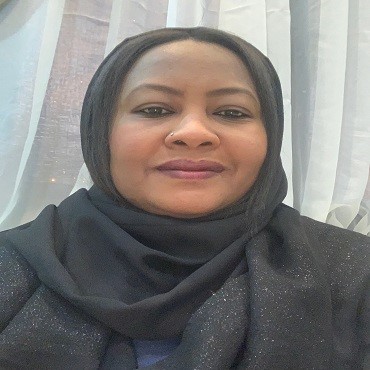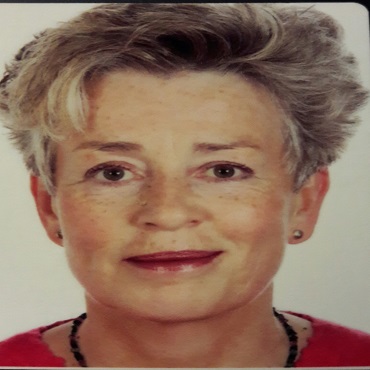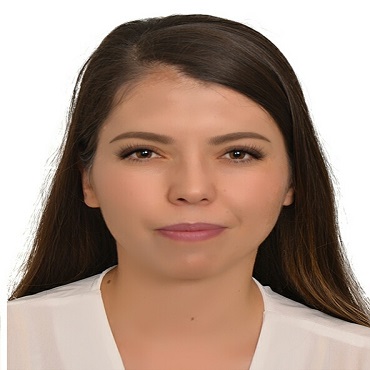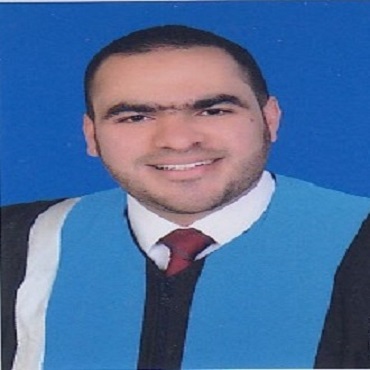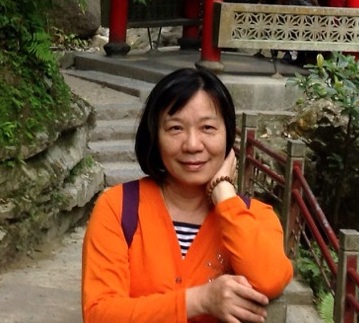Scientific Program
Keynote Session:
Title: Patient Safety Section - Speak Up for Patient Safety
Biography:
Erin Lloyd currently works as the Group Head for Nursing, Quality and Risk for Ramsay Sime Darby Healthcare (RSDH). She is a Registered Nurse, Midwife, has a Bachelor of Nursing and holds a Masters of Health Management. She has worked for Ramsay Health Care (RHC) since 1996 in various roles including Nurse Unit Manager, Hospital Quality Manager and Medical Services Manager. In 2007, she commenced working for RHC in Indonesia and in July 2013 with the joint venture between Ramsay and Sime Darby, this changed to RSDH.Erin’s keen interest in patient safety/accreditation materialized in 2011 when Bintaro Hospital (Indonesia), became the fourth hospital in Indonesia, to obtain the US Joint Commission International Accreditation. The subsequent accreditation & re accreditation, of all the three Indonesian Hospitals and two Malaysian hospitals have been extremely rewarding. Secondly, the development of strong quality teams has also been another milestone in her work and lastly the upskilling of nursing staff from diploma to degree nurses and the professionalization of nursing have been very satisfying
Abstract:
In an effort to focus on a Culture of Safety and Quality, Ramsay Sime Darby Healthcare (RSDHC) commenced a “Speak Up For Patient Safety†program in January 2019. SUFPS is an innovative and evidence-based programme, based on the Vanderbilt University (USA) program delivered with the assistance of the Cognitive Institute. The program addresses in a positive way any behaviour which undermines a culture of safety through peer-to-peer conversations and equipping staff with assertiveness training. To achieve a successful outcome there was a major focus on informing, educating and engaging key stakeholder groups.Â
Title: Designing Simulation Interventions to Reduce Stress Among New Graduate Nurses in the Intensive Care Units in Saudi Arabia: A Mixed Methods Design
Biography:
Ayidah Sanad Alqarni, PhD in Medicine Nursing (2018) speciality (Critical care for adults) at University of Adelaide (UOA) in Australia, Master of Nursing Science 2011 at UOA. She has Bachelor of Nursing Conversion, Murdoch University, WA (2010), Diploma in teaching clinical instructor program of ministry of health Saudi Arabia (2003-2004). Diploma (nursing) ABHA College Female of Nursing Associated Degree), Saudi Arabia Awarded the intermediate university degree in Health Science in the field of general nursing (1998- 2001; 1992-1995). She workes as a Registered nurse working in the critical care units (1994-2008) and Clinical educator (full-time position) at King Khalid University (Formerly known as Female ABHA college of Nursing) (Saudi Arabia).
Abstract:
Stress is often associated with being exposed to pressure usually in the working environment. Numerous researches were establishing in health care professional specifically among nurses the negative impact of job related stress. Among the many factors, communication and workload have been as major factors that contribute to stress. Over the years, simulation training has been used an alternative clinical experience to assess clinical competence for new graduate nurses in response to specific clinical situations. Simulation learning is envisaged to be a novel route towards reducing stress and gaining access to relevant clinical experience that may be essential to new graduate nurses. The aim of this study was to explored stressors among new graduate registered nurses in the intensive care units (ICUs) in one hospital in Saudi Arabian and explores the use of a complex intervention of simulation based learning exercise (SBLE) to assist in reducing stress. Methods: This research was designed based on mixed method design with interventions. The research involved three studies, which incorporated both quantitative and qualitative approaches, whereby a sequential exploratory design was explored. 189 Saudi new graduate registered nurses were surveyed about their experiences of stress in their units using the expanded nurse stress scale (ENSS) and perceived stress scales (PSS). Interviewed 5 nurse educators in one group discussion about their educational support for graduates in their units. Individual interviews of 10 new graduate registered nurses of their experiences in ICUs. The results from both the approaches were then integrated using complementarity and triangulation techniques, and was designed a complex intervention which was Simulation Based Learning (SBL) but not implemented to potentially better manage these stressors. The results showed that the Saudi new graduate registered nurses were indeed exposed to a plethora of high level stressors working in such a challenging environment. As consequence the SBLE has been designed based on this findings and in the future will be tested. This research has contributed new knowledge regarding to the stressors experienced by Saudi new graduate nurses working in the ICUs. This study offers important recommendations and insight for the further to the new graduate nurses to be considered
Title: Nursing in the International Context of Developing Countries
Biography:
Jill has had over 25 years’ in Australia and more recently in Asia, as a senior health executive of which 20 years were reporting to hospital and not for profit boards. Currently she was working as Chief Nursing Officer, Chief Operating Officer and Health Planner for VAMED Healthcare Services Asia (Thailand) and working in Vientiane Laos, she was previously CNO at Imperial Hospital, Bangladesh and CEO or CEO/CNO at multiple large and small hospitals and health services in Australia. Jill has a Bachelor of Health Administration, MBA, Ass Dip Accounting, Diploma Corporate Director, Fellowship with Australian College of Health Service Managers and qualifications in general, midwifery and mental health nursing. All skills are now being used in building, commissioning and managing hospitals in developing countries. Jill has held senior positions in the Australasian College of Health Service Managers (ACHSM) and Australian Healthcare & Hospitals Association (AHHA) which she remains a member.
Abstract:
Nursing is a profession with many challenges, and we have always known this. It is also a profession of huge alternatives, opportunities for learning and growth. Even though I have been in this profession for over 40 years, I don’t think anything has challenged my abilities, my senses, my patience yet given me a great sense of achievement like being a nursing administrator in developing countries. After having spent the previous 20 years reporting to Boards as a Chief Executive Officer, yet with clinical nursing responsibility in many of those roles, I have now returned to my nursing roots as a Chief Nursing Officer and Chief Operating Officer in several developing countries. Spending 12 months in Bangladesh, 6 months in Thailand and now resident in Laos, my role is multi-faceted; one of building, commissioning and managing hospitals and developing the clinical quality perspective with a vision to lead the hospital to international accreditation. However, when you get down to it, the predominant need is always the clinical need. The need for a hospital to reach accreditation standards, the need to fight for single use device policies and the need to train nurses in basic yet critical skills of hand hygiene, infection control, prevention of antibiotic resistance. This is difficult, yet an amazing experience when the nurses you have influenced become champions as infection control trainers and educators of their patients, their community and their colleagues. Combining my experience as a clinical nurse and a hospital administrator enables me to give back to a community. Having a role in commissioning hospitals and developing clinical and governance systems for communities that need basic health care, health literacy and essential public health measures that for most of those in modern nursing, take for granted, is both a privilege and an adventure.
Title: Tracking The Trajectory of Exercise Adherence Over Time and Examining the Effect of Theory- Lead Intervention for Knee Osteoarthritis in Older Adults :A Cluster Randomized Trial
Biography:
Limin Wang is interested in the geriatric nursing and rehabilitation nursing and has participant several meaningful researches about nee osteoarthritis in the elderly. The present study is a main about how to improve the life quality of elderly with KOA and help them cope with KOA in the long time. There is about 23.35 million people aged 60 or above years old with symptom KOA in China and the prevalence is about 11.1%-18.5%. They suffer from severe pain and limited function in remaining life. Our team are to improve the quality life of the patients by the intervention and we also would like to collaborate with other teams or scholarships from the world.
Abstract:
Knee osteoarthritis (KOA) is a common joint disease in people over 60 years old. Exercise therapy is one of the most effective non-pharmacological treatments for knee osteoarthritis, but low exercise adherence needs to be improved. The purpose of this study is to track the trajectory of exercise adherence over time and to examine the effect of the transtheoretical model-lead home exercise intervention (TTM-HEI) program on exercise adherence, symptoms and knee function in older adults with KOA. The transtheoretical model (TTM) is a widely-used multistage of action and behaviors. The study combined the model with physical activity and conducted a 24-week transtheoretical model-lead home exercise intervention program for older adults with KOA with a two-arm, cluster randomized trial design in 2018. At weeks 4, 12, 24, 36, and 48 after the program started, exercise adherence measured by an 11-point numerical self-rating scale was accessed; KOA symptoms (pain intensity and joint stiffness) and knee function (lower limb muscle strength and balance) were measured at baseline, week 24, and week 48. Findings: Tracking the trajectory of exercise adherence over time in two groups using latent growth model (LGM), we found TTM-HEI could effectively maintain participants’ exercise adherence with 5.563 (SD=0.997) comparing with 3.159 (SD=1.313) in control group at week 48 and keep members relatively consistent and better growth rate of exercise adherence with increased 2.175 units compared with control group (unstandardized coefficient of slope on group B2 =2.175) and lower 1.62 units of variances of slope. Besides TTM-HEI could also relief KOA symptoms and improve knee function much better than control group. Exercise adherence shows big variance between individuals over time under no supervision and TTM-HEI program could maintain individuals’ good exercise habit by setting goals and tailoring the schedule
Title: The introduction of the Open Dialogue Approach into daily practice of psychiatry, especially focusing on the role of so trained nurses
Biography:
Sabine Schütze after graduation from medical studies at the University of Hamburg, Germany in 1983 she began an internship at the Psychiatric Department of the University Hospital in Hamburg, which included a training in CBT. In 1988 she continued on specialization in the department of Neurology and Psychiatry at the General Hospital in Berlin-Moabit, where she was engaged in teaching psychiatric topics to young nurses. After completion of her internship in 1992 she applied as a certified psychiatrist and psychotherapist for the position as a senior psychiatrist at the Klinikum Am Urban in Berlin-Kreuzberg, where she focused her work on the themes of addiction and personality disorders. From 1994 to 2018 she worked as a senior psychiatrist in the Vivantes Hospital Berlin-Neukölln.
Abstract:
The Open Dialogue Approach is both a community-based and social network-oriented treatment system offered to persons in psychic crises and their families, which follows certain guidelines as e.g. immediate help, which is given in a flexible and mobile way, and a special therapeutic attitude with a way of communication with the patients and their families. The essential elements of this communication have to be trained, which may take place as an in house-training or within a series of workshops visited by members of different institutions. Though these training groups are usually multiprofessionally composed, so that participants of different backgrounds learn together, the importance of considering psychiatric nurses in these trainings has to be pointed out: as one of the characteristics of the ODA consists of its non-hierarchical attitude, so trained nurses usually enjoy an improved position in their team, respectively in the contact with patients and their families, experiencing themselves as more competent and interested in the contexts of crises. This process will be illustrated by the example of the feedback to a questioning carried out with psychiatric nurses after an in house-training in a psychiatric hospital in Berlin.
Title: Comparing effect of concept map and lecture method on Diabetes learning level
Biography:
Dondu Sanliturk is an Assistant professor at the Faculty of Health Sciences in Nursing department, Tokat Gaziosmanpasa University. She holds master degrees in internal medicine nursing. She obtained her PhD from University of Gazi. Her research interests include care burden in caregivers, asthma control and management, diabetes management, scale development, concept map and planned behavior theory in nursing care.
Abstract:
Effective approaches to diabetes education are important for learners to develop basic competence in handling patients with diabetic problems. The concept map-based teaching method enables nursing students to connect new information to existing knowledge and integrates interdisciplinary knowledge. However, there is a lack of evidence related to the concept map-based teaching method in nursing education. The purpose of the study was to determine the effect of concept map-based and lecture-based teaching methods on the level of nursing students’ learning in Diabet. This pretest posttest semi-experimental study has been conducted in the nursing school of Tokat, Turkey in 2019. In total, 56 second grade nursing students participated in the study. After the students were ranked according to the university entrance score, the students in the list were selected from the beginning and the end and were divided into concept map (n=28) and lecture groups (n=28) respectively. The effect of education on knowledge (before, immediately after the session) was studied. Data were collected through two questionnaires. The first one was demographic data included age, gender, employment status, place of residence and mean diploma. The second was a multiple choice questionnaire with 20 questions. There was no significant difference in terms of sociodemographic characteristics of students in the concept map and lecture group (p> .05). No significant differences were found between the mean scores of knowledge before intervention (p> .05). After the intervention, the mean scores of knowledge were statistically significant between the two groups (p < .05). In achieving the level of nursing students’ learning in Diabet, it seems that the concept map-based teaching method was more effective than the lecture method. In conclusion that concept map-based as the educational method could encourage a group of nursing students knowledge of diabetes, which might ultimately result in better nursing care quality.
Title: Implicit biases: Interference in culturally congruent provision of health care
Biography:
Marie M. Spivey is a Principal/Consultant with the System for Education, Equity & Transition, LLC (SEET Consultants, LLC). She is a Registered Nurse who holds an EdD and MPA, both from the University of Hartford, and a BS Degree in Human Service from Southern New Hampshire University. Dr. Spivey’s professional focus is to present forward-thinking insights into the strategic planning process of organizational decision-makers and academic classrooms in order to enhance their ability to incorporate culturally and linguistically appropriate services and standards into their policies, procedures and practices. Dr. Spivey is an innovative interorganizational leader and educator prepared to provide professional staff of clinical organizations and agencies with a better understanding of health inequities directly affecting the quality of life of the individuals and families they serve. Dr. Spivey aids health care organizations to recognize internal implicit biases, and racial discriminatory injustices as a means to incorporate diversity, equity and inclusion into their policies, procedures, practices and academic teachings. This process enables organizations and classroom teachings to effectively and efficiently improve common understanding and value of learned cultural congruence.
Abstract:
Nurses and healthcare professionals across the world have unconsciously internalized implicit biases within their services, influenced by pervasive learned behavior, attitudes, and stereotypes. These biases can easily interfere with our understanding, actions, and decisions when healthcare services are performed. Such features can also be evidenced in healthcare organizations’ recruitment, support, and retention policies, as well as the education and training elements included in academic curricula. Initial classroom preparation for nurses is based on an environment of learning related to the nursing Code of Ethics, legal requirements, care management, quality improvement, and in todays world of changing responsibilities – systems-level change management. However, opportunities to elicit perceptions of discrimination and discomfort in an unobtrusive manner from a diverse student body remains untouched. The objective of this presentation is to promote the inclusion of underlying academic policies to attract, advance and better prepare nurses by embedding building blocks of self-assessment, self-advocacy, and the identification of implicit bias into every aspect of teaching, learning, and practice for all nurses. In order to heighten the culturally congruent understanding and performance critically required for patient satisfaction, nurses must also have continuous opportunities to effectively improve communications that enhance peer-to-peer working relationships Nurses will emerge from professional development opportunities possessing a higher level of comfort and knowledge in their ability to demonstrate more culturally congruent communication with peers, patients, other healthcare professionals and stakeholders. In so doing, they will have the ability to facilitate the achievement of health equity, strengthened relationships, and a framework for cultural competence.
Title: The influence of leadership behaviors and hospitals' organizational culture on incidents Reporting practices as perceived by Jordanian hospitals registered nurses
Biography:
Islam Oweidat holds Bachelor degree in General Nursing sciences from Jordan University of Science and Technology (Jordan), excellent degree. He has a Degree of Master in Nursing Services Administration from Jordan University of Science and Technology (Jordan), excellent degree. The Master thesis was titled by "The relationship between emotional intelligence and job performance among Jordanian hospitals' registered nurses". Published in Nursing Forum Journal. Current PhD candidate at the school of Nursing at the University of Jordan, Dissertation titled by "The influence of leadership behaviors and hospitals' organizational culture on incidents reporting practices as perceived by Jordanian hospitals' registered nurses" Literature review part was published in Open Journal of Nursing.
Abstract:
Statement of the Problem: in Jordanian context there are many clinical incidents are going underreported due to many factors and barriers existed in healthcare institutions. Researchers have reported that leadership behaviors and existed organizational culture will affect the way that nurses do reporting for the incidents that they face in their practical lives. The purpose of this study is to investigate the influence of leadership behaviors of nurse managers and hospitals' organizational culture on incidents reporting practices as perceived by Jordanian hospitals' registered nurses, and to compare these concepts among registered nurses in different health sectors. Methodology: A descriptive cross sectional, correlational survey was used for the present study. cluster sample from working nurses in all healthcare sectors in Jordan (governmental, private, and university-affiliated teaching hospitals were recruited by simple random sampling technique, with sample size about 325 registered nurses. response rate was about 85%. Results: nurses in teaching hospitals have the best perceptions of their leaders in practicing leadership behaviors (M=6.92, SD=1.19). Moreover, nurses in private hospitals perceived their hospitals as having positive culture (M=2.85, SD=0.53). There was a medium positive relationship between leadership behaviors and culture (r=0.423, p=000), and there was a small positive relationship between hospitals culture and incidents reporting practices (r=0.185, p=0.001). The major barrier that was reported by nurses that hinder them to report was worrying about disciplinary actions (M=3.19, SD=1.32). Conclusion & Significance: the most important factor in healthcare institutions is to create transformational leaders that will create a supportive and just culture that will enhance the reporting practices of nurses in a timely manner and in an appropriate way. Recommendations: there is a huge responsibility upon nurse legislators to create a supportive nursing environments for their nurses in order to enhance the reporting practices of any incident that is being happened on daily basis.
Title: Effects of a mobile supportive care program on depression in oral cancer patients underwent surgery
Biography:
Yu-Hua Lin has completed her PhD degree from the school of nursing, Kaohsiung Medical University, Taiwan. She had 35 years working experience in the field of nursing. Now, she is a professor in the school of nursing, I-Shou University in Taiwan R.O.C. She has published more than 50 papers in reputed journals and has been serving as an editorial board member of the Journal of Nursing in Taiwan Nurses Association.
Abstract:
The purpose of this study was to examine the effects of a mobile supportive care program (MSCP) on depressive symptoms in patient with oral cancer underwent oral surgery. A quasi-experimental design with simple randomize sampling, and the Center for Epidemiologic Studies Depression Scale (CES-D) was used to collect participants’ data. Participants were distributed into with a MSCP before discharge (experimental group, n=55) or without used MSCP (control group, n=55). The MSCP was loading in a Line app in experimental group mobile after education. The outcome was followed at the 7 days (first time clinic visited, T1), one month (T2), and three month (T3) after discharge. The CESD scores showed that all the two groups’ participants experienced depressive symptoms decreased at the one and three months after received MSCP (all p<.001). The generalized estimating equation analysis showed that after controlled age, both group and time were significantly different, indicated both group patients experienced depressive symptoms improvement, however, the MSCP group depressive symptoms was improved better than non-MSCP group. An interaction existed between the groups and test times in CESD from Time 1 to Time 3. These results indicate that the MSCP effects were influenced by time. These results showed that the CESD score of the experimental group was significantly lower than that of the control group by 6.51 points at one-month, and 5.60 points at three-month. This results recommend for the healthcare staff embed this MSCP into discharge plan in care of oral cancer patient underwent oral surgery.
Title: Five years retrospective descriptive study of TB and HIV patients
Biography:
Mir Anwar graduated Medicine from Bangladesh in 1975. He did his post-graduation in Pediatrics from Ireland in 1982. Further he did his Public Health Post graduation- MPH (concentration Maternity and Child Health) from University of Massachusetts, USA in 2003. Then he joins in UN/ WHO and worked as a Pediatric Consultant & Public Health Specialist, around the world including Asia, Middle East, Africa, Pacific Island, Ireland and USA. Since 2007 he has been working in South Africa in different provinces of South Africa with the Department of Health. Presently he is working as a Clinical Medical Manager in Richmond Chest Hospital, KZN. South Africa. In his long carrier in Pediatric and Public Health he had attended several International Congress, Conferences, and Seminars and presented his original work. Some of them were published in International Journal Including American Child Neurology Journal, Japan Pediatric Neurology Journal, Pakistan Pediatric Journal, Bangladesh Child Medical Journal, Nigerian Journal of Obstratics and Gynecology Etc.
For his work he is honored by American Academy of Pediatrics, Royal College of Health, UK, and International College of Pediatrics. Etc. His Biography was published in Who’s Who in Medicine Cambridge, UK in 1985. He is an active member of different International and National Pediatric Organization, Association etc. Presently is one of the honorary Member of Editorial Board- Journal of Pediatrics & Neonatal Biology, Published from Texas, USA.
Abstract:
Background- South Africa (SA) has the highest HIV and TB burden in the world. Co –infection of TB and HIV are the worst in respect of morbidity and mortality in this part of the world.
Objective- To know the outcome of TB & HIV patients while treating in Hospital setup. To explore the risk of Co-infection amongst TB & HIV patients we compare both isolated TB patients and TB & HIV patients.
Methods – TB and HIV infection in retrospective descriptive study was in our mind. Total 3544 patients were admitted in Richmond Chest (TB) Hospital, KZN province of South Africa from 2009 to 2013. Total admission in 2009 was 993, death was 288, and death rate was 29%. While in 2013 admission was 318 deaths were 72.Death rate in 2013 was 23%, Age range of the patients was 15 to 65 years. Crude proportionate was observed Male- 48% Female – 45% Children - 7%
Results - The incidence of death amongst the all patients of exclusive TB, and TB & HIV co-infection shows different variation in different age group. Out of total death, more than 50% were in the age group of 30 to 60 years of old. It also shows Death rate were higher in the category of patients having co- infection TB and HIV together. Out of total death, 40% had low CD4 count, below 100.which is a significant to observe. Death rate in 2009 was 29%, and in 2013 was 23% .The male and female ratio does not show any major difference neither in disease pattern nor in outcome. But in South Africa as a whole country wise study shows Female are more infected in AIDS than male.
Conclusion - Decrease of death rate was not due to improvement of care and management, it was noted admission policy had been dramatically changed in Richmond Hospital which leads to decline input of patients in the hospital that reflect declining death rate in later year. Early diagnosis and early initiation of treatment and re-treatment will definitely give better outcome in years to come. The new era of fixed dose, once a day treatment both in TB and HIV shows better compliance amongst the poor set up patient’s society.


